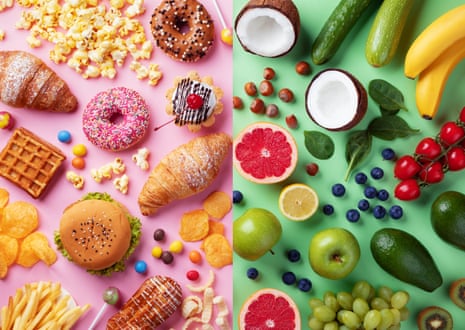
Should I worry about how much sugar I consume?
Sugary foods are easier to access than ever and designed to keep us coming back for more. Are they actually addictive – and should we quit them?
Everyone loves sugar. And for good reason! Back in the paleolithic days, when food was scarce, you’d have had to gnaw through nearly a metre of chunky, fibrous sugar cane to get the same amount of energy you can now glug down via a single can of Coke. But apart from the fact that most of us aren’t chasing enough mammoths to need that kind of calorie hit any more, is there anything really that bad about our fondness for the sweet stuff? Or is it actually addictive and should we be quitting it entirely? Toothbrush at the ready: the truth might leave a sour taste.
First of all, it’s important to understand the distinction between “free” sugars – added to foods like sweets, cakes, biscuits, and fizzy drinks – and the sugar found naturally in milk, fruit and vegetables. “The intrinsic sugars naturally incorporated within the cellular structure of food, like the sugar found in whole fruit and vegetables, are released more slowly into the bloodstream,” says the nutritionist Lily Soutter. “This is also the case with milk sugars that come alongside a helping of protein and fat, which can keep you feeling fuller for longer. The recommendation for adults is that we cut back on ‘free’ sugars to just 5% of total energy intake, which equates to about 30g a day for adults.” That’s roughly seven teaspoons.
Foods high in free sugars also tend to be high in calories, making them easy to overeat and increasing our risk of health conditions including heart disease and type 2 diabetes. Some researchers also note that foods that combine a high sugar content with fat and salt can be “hyperpalatable”, meaning that we’re likely to consume more than we need even if we’re full.
Recently, evidence has emerged that foods high in sugar and fat can actually rewire the brain to demand more in the future. In a study published this year, researchers at the Max Planck Institute for Metabolism Research in Cologne gave one group of volunteers a small pudding containing a lot of fat and sugar every day for eight weeks, while a control group got a pudding that contained the same number of calories but less fat.
READ RELATED: Stand on one leg – and 16 other life-changing daily moves that will keep your body happy
The result? The first group’s brains began responding more to the high-sugar, high-fat desserts, showing notable activation in the dopaminergic system, the region in the brain responsible for motivation and reward. “Our measurements of brain activity showed that the brain rewires itself … to prefer rewarding food,” says Prof Marc Tittgemeyer, who led the study. “Through these changes in the brain, we will unconsciously always prefer the foods that contain a lot of fat and sugar.”
Is excess sugar consumption bad even if it doesn’t lead to excess calories and obesity? Here, the evidence isn’t as clearcut, but there is some proof that sugar can overload the liver, leading to long-term problems, and lead to chronic inflammation, which can be a cause of heart disease. And – just so we’re all on the same page – yes, it causes tooth decay, brought on by the acid produced when bacteria in your mouth break it down.
To sum up, then: you should probably cut down, and free sugars are the place to start. “One of the simplest changes to make is cutting down on soft drinks,” says Soutter. “Also, read food labels: some foods display a traffic light label on the front of the pack, and while this accounts for total sugars rather than just free sugars, it can still be helpful when comparing products and making healthier choices.”
If your sweet tooth kicks in, consider switching to fruit. “Whole fresh fruit comes with beneficial fibre, vitamins and minerals, and can keep us full,” says Soutter. “It can be easy to drink a glass of fruit juice in seconds, but you aren’t going to eat three oranges in the same time.”
Finally, consider what is making you reach for the sweet stuff in the first place: “High sugar cravings are often due to environmental stressors,” says Wes Santos, nutritionist and founder of Instate Fitness. “So, instead of reaching for that sugary snack, take a moment to ask yourself three questions: ‘Am I stressed? Am I thirsty? Or am I emotional?’ After that, you can decide on what foods will fuel you best.” Spoiler: if you’re not worried about a sabre-tooth tiger attack, you probably don’t need a whole can of Coke.
Source: Health & wellbeing | The Guardian





